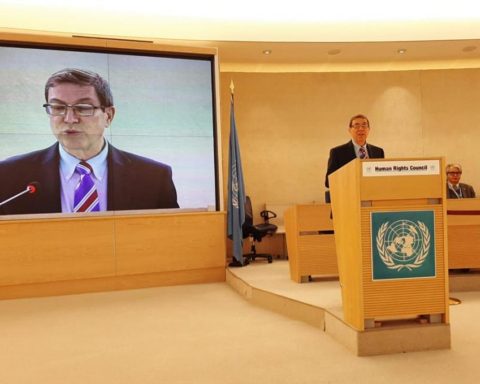
July 8, 2023, 6:38 PM
July 8, 2023, 6:38 PM
The Bolivian sugar industry contributes to the generation of electricity in Bolivia with 120 megawatts (MW), a volume that, with planning and political decision it can go up to 350 MWreported Cristóbal Roda, president of the Aguaí Sugar Mill. This increase, he specified, is linked to the state demand for anhydrous alcohol to mix it with gasoline
“Currently, the sector has an installed capacity of 120 megawatt hours. If the ethanol program grows, at the rate we want it to grow, we can triple that energy production and reach about 350 megawatts,” said the businessman.
This greater electricity generation, based on biomass, represents today to the State a savings in foreign currency of $us 150 million, since it reduces the amount of gas that goes to thermoelectric plants, which is sold at a price of $us 1.5 per thousand BTUs; and it increases the exportable volume of this energy, for which between $6 and 10 are paid per thousand BTUs, Roda explained.
The president of Aguaí also explained that Paraguay and Brazil currently have a 25% ethanol blend in their gasoline, while that level in Bolivia is only 10%.
“That can be doubled or tripled, it means saving cheap gas to export expensive gas. There, who wins? The State, the Bolivian. Other than that, We promote investment, we work to mitigate climate change, we substitute fuel imports, we generate more electricity and we produce more sugar for the domestic market and for export”, highlighted Roda.
The businessman argued that Santa Cruz has the conditions in: land, climate and investment, to carry out this project; but that this has not been possible due to the obstacles that the Government is placing.
This year, one of the last obstacles was the debt of Yacimientos Petrolíferos Fiscales Bolivianos (YPFB) with the mills for the purchase of anhydrous alcohol.
On June 24, after meeting with representatives of sugar mills and ethanol producers, the state oil company reported that the outstanding balance for April would be paid until June 27.
Other points discussed in the meeting were the contractual situation with mills and ethanol production planning for the next three to four years.
“Four years trying to include medium-term planning (…). Today they tell us in despair: ‘We want to go up to 13%’, but there is no longer the area that we should have planted, due to a lack of foresight. We do not have that symbiosis of work between the Government and the private sector,” Roda lamented.

















